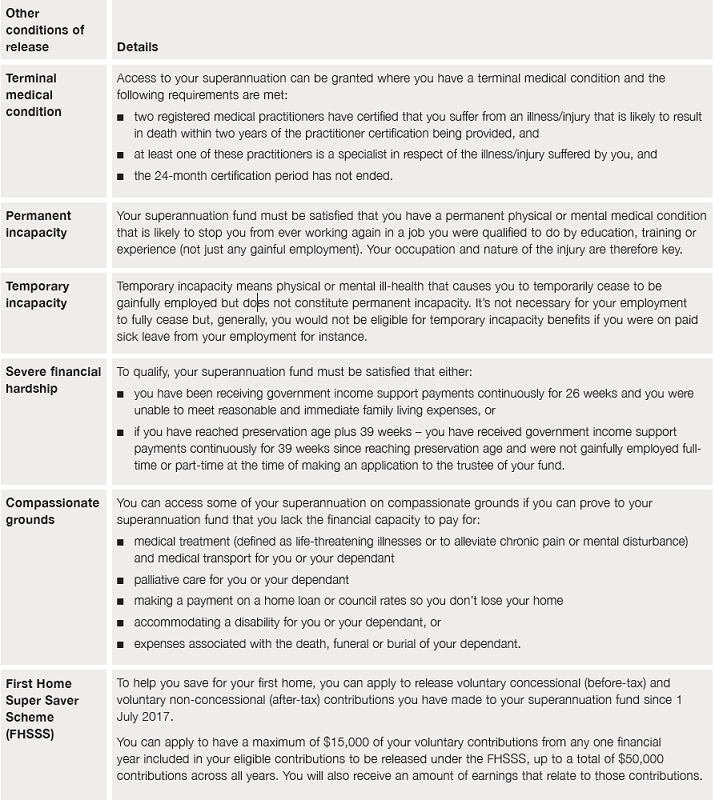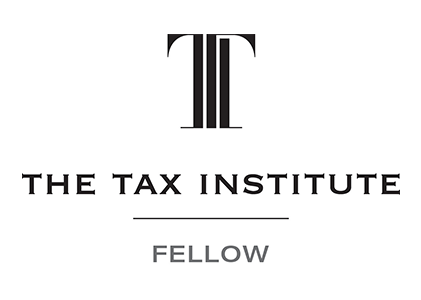
Common conditions of release
A condition of release must be met before you can access your superannuation benefits. The most common conditions of release for paying benefits are when you:
■ Have reached your preservation age and retire (see below for preservation age)
■ Have reached your preservation age and begin a transition-to-retirement income stream
■ Cease an employment arrangement on or after the age of 60
■ Turn 65 years of age (even if you haven’t retired)
■ Pass away.
Preservation age
Access to superannuation benefits is generally restricted to individuals who have reached their preservation age. This is because the preservation rules aim to prevent early access to benefits.
The table below summarises when you may reach your preservation age and therefore potentially access your superannuation benefits:
Other conditions of release
Besides the common condition of release events that apply to most cases, there are other special circumstances where at least part of your superannuation benefits can be released before you have reached preservation age.
These less common condition of release events are summarised in the table on the following page.

Need more information?
There are many factors to consider before accessing your superannuation, including how it will impact your retirement, taxation and what effect it will have on any other benefits you’re receiving.
Please contact us if you would like more information on any of these conditions of release and would like to discuss your options. We will explain the conditions and requirements that need to be met to demonstrate your eligibility which may help you access your superannuation benefits
Our Management Credentials




